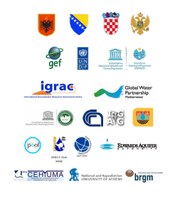Partners
Global Environmental Facility
The Global Environment Facility (GEF), established in 1991, helps developing countries fund projects and programs that protect the global environment. GEF grants support projects related to biodiversity, climate change, international waters, land degradation, the ozone layer, and persistent organic pollutants. GEF is an independent financial organization that provides grants to developing countries for projects that benefit the global environment and promote sustainable livelihoods in local communities.
The GEF unites 182 countries in partnership with international institutions, civil society organizations (CSOs), and the private sector to address global environmental issues while supporting national sustainable development initiatives. Today the GEF is the largest public funder of projects to improve the global environment. An independently operating financial organization, the GEF provides grants for projects related to biodiversity, climate change, international waters, land degradation, the ozone layer, and persistent organic pollutants.
Since 1991, the GEF has achieved a strong track record with developing countries and countries with economies in transition, providing $10.5 billion in grants and leveraging $51 billion in co-financing for over 2,700 projects in over 165 countries. Through its Small Grants Programme (SGP), the GEF has also made more than 14,000 small grants directly to civil society and community based organizations, totalling $634 million.
United Nations Development Programme
UNDP is the UN's global development network, an organization advocating for change and connecting countries to knowledge, experience and resources to help people build a better life. They are working with countries on their own solutions to global and national development challenges. As they develop local capacity, they draw on the people of UNDP and its wide range of partners.
UNDP partners with people at all levels of society to help build nations that can withstand crisis, and drive and sustain the kind of growth that improves the quality of life for everyone. On the ground in 177 countries and territories, it offers global perspective and local insight to help empower lives and build resilient nations.
UNDP helps developing countries attract and use aid effectively. In all the activities, they encourage the protection of human rights, capacity development and the empowerment of women. In each country office, the UNDP Resident Representative normally also serves as the Resident Coordinator of development activities for the United Nations system as a whole. Through such coordination, UNDP seeks to ensure the most effective use of UN and international aid resources.
United Nations Educational, Scientific and Cultural Organization
UNESCO works to create the conditions for dialogue among civilizations, cultures and peoples, based upon respect for commonly shared values. It is through this dialogue that the world can achieve global visions of sustainable development encompassing observance of human rights, mutual respect and the alleviation of poverty, all of which are at the heart of UNESCO’S mission and activities.
UNESCO’s Intergovernmental Scientific Cooperative Programme in Hydrology and Water Resources
The International Hydrological Programme (IHP) is the only intergovernmental programme of the UN system devoted to water research, water resources management, and education and capacity building. The programme, tailored to Member States’ needs, is implemented in six-year phases – allowing it to adapt to a rapidly changing world.
UNESCO’s work in the water sector is built on three tracks:
- hydrological science for policy relevant advice
- education and capacity building responding to the growing needs of sustainable development
- water resources assessment and management to achieve environmental sustainability
Participating Countries
The following countries participate in the project:
as GEF fund recipient countries:
- Albania,
- Bosnia-Herzegovina,
- Croatia
- Montenegro
as GEF fund non-recipient countries:
- Italy
- Slovenia
- Greece
- France


